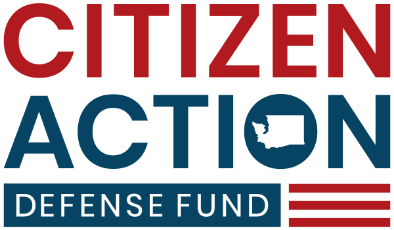Earlier this month, the Ninth Circuit issued a decision in a case involving Washington State employees that threatens to dangerously erode a key First Amendment right.
The case is Belgau v. Inslee, a class-action lawsuit on behalf of state employees who attempted to exercise their constitutional right to opt-out of their union. However, a clause buried in their union membership card required that any attempt to cancel union dues had to be made during a narrow 10-day window that occurred once a year. Because the employees did not make their opt-out request during the 10-day window, the state continued to deduct union dues from their wages. Regrettably, the Ninth Circuit Court of Appeals agreed with the state and the union and upheld their ability to deduct union fees from state employees who wish to cancel such deductions.
This outcome flies in the face of a landmark First Amendment case from 2018, known as Janus v. AFSCME. In Janus, the U.S. Supreme Court ruled that public employees could not be compelled to join a union or pay fees to a union. The case was remarkable not just for the outcome, but because the Court took the unusual step of explicitly reversing one of its prior decisions, Abood v. Detroit Board of Education, which had permitted states to require that public employees join a union or pay “agency fees” to fund their union’s activities.
In Abood, the Supreme Court had originally concluded that such arrangements were acceptable because they promoted “labor peace” and prevented “free riders” from taking advantage of the benefits of a union without paying toward its costs. But in Janus, the Court realized that it had wrongly decided Abood 40 years earlier. The majority opinion in Janus pointed out that “labor peace” hadn’t suffered in states that didn’t require union membership, and that unions were voluntarily seeking recognition as “exclusive” bargaining representatives so if they didn’t want “free riders,” they didn’t have to become the exclusive bargaining representative.
But more importantly, the Supreme Court recognized that under the First Amendment, the “freedom of speech ‘includes both the right to speak freely and the right to refrain from speaking at all.” The Court quoted Founding Fathers like Thomas Jefferson and explained that:
When speech is compelled, additional damage is done. Individuals are coerced into betraying their convictions. Forcing free and independent individuals to endorse ideas they find objectionable is always demeaning.
The Court connected speech itself to the financing of speech by noting that “compelling a person to subsidize the speech of other private speakers raises similar First Amendment concern.”
The Court ultimately concluded that, in light of how “essential to our democratic form of government” the right to speak—or not speak—is, “labor peace” and avoiding “free riders” (plus several other rationales suggested by the parties to the case) weren’t nearly good enough reasons to allow a state to compel speech (or the subsidization of speech they disagree with).
And the Court’s ruling was crystal clear. In no uncertain terms, it ordered that “states and public-sector unions may no longer extract agency fees from nonconsenting employees” and that “neither an agency fee nor any other payment to the union may be deducted from a nonmember’s wages, nor may any other attempt be made to collect such a payment, unless the employee affirmatively consents to pay.”
If that weren’t clear enough, the Court also proclaimed that because public employees have a First Amendment right to not pay union dues or agency fees, states and unions can only deduct these costs from employees’ paychecks if they have “clear and compelling evidence” of consent.
The state employees who filed a lawsuit in Belgau v. Inslee not only revoked their consent to pay union dues, they expressly demanded that their wages not be paid over to the union. Despite this clear lack of consent, the state continued to withhold a portion of their wages and pay those amounts to the union, for up to a year. The Ninth Circuit said this arrangement was acceptable, even in light of the Supreme Court’s Janus decision.
This outcome severely undercuts Janus, by giving unions and states free rein to make opting out of a union as onerous as possible. If a union can limit its members to an annual 10-day opt-out period, what about a two-day opt-out period every other year? What about a one-hour window occurring once every five years? And if the state and unions can limit when public employees can stop subsidizing activities they disagree with, could they also limit how employees do so? Can they require notice be delivered by mail, or FedEx, or in-person delivery, or even carrier pigeon?
The Supreme Court was clear that union payments cannot be deducted from a public employee’s paycheck without their “clear and compelling” consent, but the Ninth Circuit’s decision would let unions dictate draconian terms that could make it practically impossible for an employee to ever halt such payments.
Hopefully this case will be appealed to the United States Supreme Court, and hopefully that Court reverses the Ninth Circuit and makes clear that all public employees have a constitutional right to not subsidize speech they disagree with.

